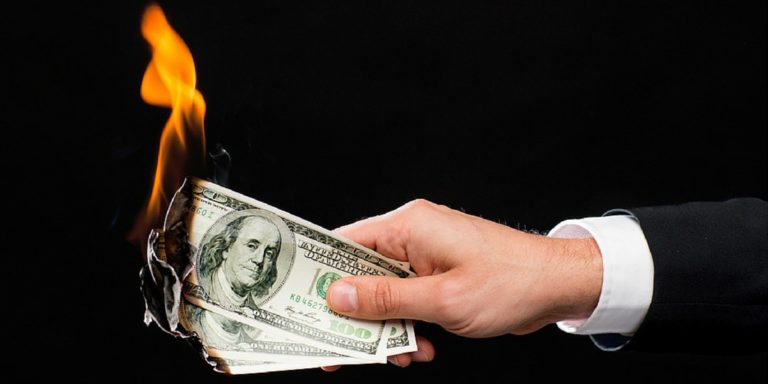Sponsorship is one of the most effective marketing strategies you can use to promote your next event. Securing a sponsor can help you increase awareness of your brand, reach new markets, and build customer loyalty.
But sponsorships don’t always come easy. You have to prove your company’s value to your potential partners, and also make sure that you’re working with reputable organizations that aligns with your company’s mission and goals.
Learn more about the benefits of event sponsorship β including reduced costs and a boost in credibility β and find out how to find and get event sponsors for your next event.
What Is Event Sponsorship?
Event sponsorship is a strategic marketing partnership between two or more organizations to promote each other’s products, services, or causes. The sponsoring organization provides financial or in-kind support to the event in exchange for promotional opportunities.
There are many reasons why a company might choose to sponsor an event, including:
- Increased brand awareness
- Direct contact with their target audience
- In-event speaking opportunities
- Building relationships with potential customers or partners
When you’re ready to pitch an organization for a sponsorship, keep these points in mind. You want to be able to show how your event will also benefit them.
Why It Matters: The Value and Benefits of Sponsorship
There are many reasons why sponsorships are beneficial for both parties involved β especially for you, the event organizer. It can help cut costs, boost your credibility, expand your customer base, and open up new branding opportunities.
It Cuts Costs & Provides Funding for Your Event Budget
Creating an event can be costly, but a sponsor can help fund some or all of your event. Some sponsors will offer to cover the costs of specific event elements like stages, sound systems, or promotional materials.
Once you have secured sponsorship, it’s crucial to create a contract outlining all parties’ expectations and benefits. When sponsors invest in your event, it can help you create a bigger and better event that fulfills β and maybe even surpasses β your original goals.
It Boosts Your Credibility & Brand Association
Event sponsorship helps boost your brand’s credibility, as long as you partner with a reputable company that you respect. Being associated with a company that has similar values to yours is essential for consistency and credibility. It shows your existing and future customers that you stick by your principles and support other companies that do as well.
Partnering with a credible sponsor will also help your bottom line. People are more likely to attend an event associated with a company or brand that they trust.
It Expands Your Customer Base
One of the biggest challenges for event organizers is not only getting the attention of their own customer base but reaching a whole new audience. A sponsor that already has an established fanbase within your target demographic can also help boost your exposure and expand your customer base. You’ll be able to reach audiences you may not have been able to on your own.
If you’re a small company, don’t be afraid to pitch to a bigger brand. Companies β no matter their size β are also looking to partner with brands that will help their reputation and even grow their own customer base as well.
It Offers Fresh Branding Opportunities
Think of event sponsorship as an opportunity to refresh your branding. You can share resources, knowledge, and lessons learned from past events with your sponsor as you re-examine your current brand. For your event, you may want to update your current branding or try something totally new. A sponsor can help you by providing new promotional materials, signage, or even uniforms for your event staff. This method is a great way to freshen up your brand’s design and give your event a fresh look β without breaking the bank.
Finding Sponsors 101: How to Get Event Sponsorships
Of course, getting and securing a sponsor requires some diligent work. Here are some valuable tips on how to find event sponsors.
Know Your Stuff: Gather Event Goals and Target Audience Info for Clients
A sponsor is not only interested in your brand, but your audience. Your proposal should outline your specific event goals and target audience. Show that you are a credible brand with a clear mission and a loyal following.
Get to know who your target audience is and how to best get their attention. Understand your target market’s:
- Demographics. This includes age, gender, location, industry, and education level.
- Motivations and interests. Find out what motivates the audience to engage with your brand, events, and campaigns.
- Buying preferences and brand loyalty. What type of brands does your audience prefer? What are their buying patterns?
Don’t forget to research your potential partner’s business as well. What is it you respect about their brand? What does their current customer base look like? What have been their successes and setbacks? How can you benefit from them and vice versa? Customize your proposal to each business to show how both of your brands align.
Offer Flexibility: Put Together Different Event Sponsorship Levels
Remember that event sponsorship is not just about the funding β it’s also about providing a good opportunity for your sponsors. If you’re looking to bring in multiple sponsors or want to provide different opportunities for your potential sponsors, you may want to consider developing sponsorship packages. You can create low-, mid-, and high-tier event sponsorship packages that outline the benefits of each level alongside the cost of the sponsorship.
For example, if you’re sponsoring a 5k run, the lowest level tier may involve something as simple as having the sponsor’s logo on the t-shirt given to all participants. The next level may include their logo placement on bigger event materials β like a customized banner at the finish line. The highest tier could involve all of the above, as well as extra print advertising and social media marketing before, during, and after the event.
Research: Find Potential Sponsors with Similar Event Values
Search for companies that you like and that align with your values. Let’s go back to that 5k run. You’ll likely want to reach out to a brand that values health and wellness with a focus on your target audience. Start by checking past events that are similar to the one you’re planning and see what organizations served as sponsors. When you’ve put together a list of potential sponsors, take a look at each of their missions, goals, and past event sponsorships.
There’s a chance that if an organization sponsored a similar event, they may be interested in yours as well. It also means that they likely have the resources available to be a sponsor.
Leverage Proof: Use Testimonials & Previous Event Data with a Positive ROI
Your chances of landing an event sponsorship deal improve significantly if you have some data to help back up your proposal. Provide plenty of testimonials and previous event data, like ticket sales, so that potential sponsors can see a positive ROI. This will help them understand that their investment in your event is likely to pay off, making them more comfortable working with you.
However, you might not have all this data if you’re creating an event for the first time. If this is the case, here are a few things to share when sending your pitch:
- Potential event reach (both online and offline)
- Guest demographics
- Social media engagement levels
- Industries represented by the attendants
Are You Ready to Put Together Your Event Sponsorship Proposal?
Here are a few tips on putting together an event sponsorship proposal that gets approved:
- Create a proposal that stands out. Prove that you’ve done your research β on your company, your target audience, and your potential sponsor.
- Be clear about what you are asking for in terms of support and how the sponsor will benefit from being associated with your event. These benefits may include brand recognition, access to your target audience, and increased sales. Event sponsors want to know why they should choose you.
- Consider what your potential event sponsors are looking for in events they support. Their needs should be at the forefront of your mind as you craft your proposal.
- Know the key decision-makers at a company, such as the marketing or events manager to make sure your sponsorship proposal gets in front of the right people.
If you’re looking to find and secure that dream sponsorship for your next event, sign up with Events.com. We will help you through every stage of the event organizing process. You’ll be able to access various customized tools that can help you craft, send, and track your event proposals.
Our event management software also allows you to create event registration pages, view custom dashboards, and make updates on the go. This way, you’ll land sponsors for your event, sell more deals, and increase revenue quickly.




